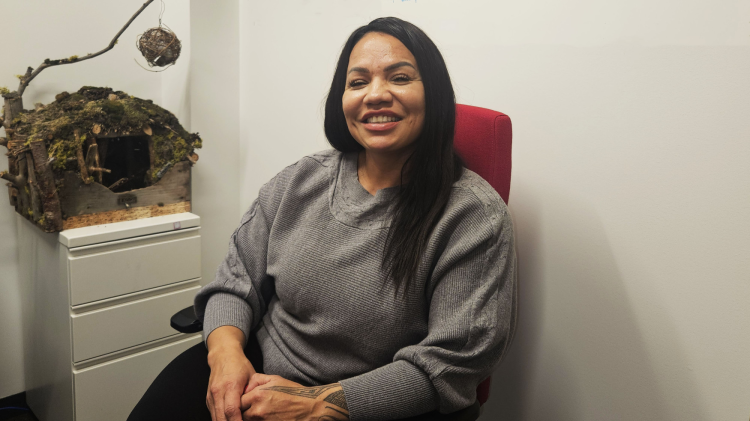Thompson Rivers University (TRU) is committed to creating an inclusive and equitable academic environment by prioritizing decolonization and Indigenization. These transformative efforts address systemic biases, integrate Indigenous perspectives into the curriculum and foster a community that values traditional knowledge alongside contemporary scholarship.
At the forefront of this vital work is Laura Grizzlypaws, a celebrated cultural advocate and leader of St'át'imc descent. In her role as educational developer for Indigenous teaching and learning at the Centre for Excellence in Learning and Teaching (CELT), Grizzlypaws is embedding Indigenous ways of knowing into TRU's teaching practices and curriculum.

Laura Grizzlypaws, educational developer for Indigenous teaching and learning
"My role is to advance Indigenization by challenging systemic colonization and traditional Western approaches to education," she says. "Through this work, I strive to create holistic opportunities for teaching and learning that embed Indigenous knowledge, ways of knowing and outcomes into every aspect of curriculum development."
Achievements and metrics
Since stepping into her role as educational developer in 2021, Grizzlypaws has witnessed substantial progress on campus through workshops, consultations and engagements.
"When I first started, I engaged approximately 850 faculty and staff through consultations, one-on-one meetings, workshop delivery and curriculum development," she says. "By 2024, this number grew significantly, with approximately 1,456 faculty and staff participating in consultations alone. These engagements fostered collaboration, provided guidance and facilitated the implementation of Indigenization initiatives."
Grizzlypaws says that throughout the 2024 reporting period, 1,380 hours were dedicated to faculty engagements.
"These hours included consultations, workshops, one-on-one meetings, committee work and other activities aimed at supporting faculty members in implementing Indigenization practices within their roles."
Learning from the land
A valuable part of TRU's Indigenization efforts is the Learning from the Land Retreat, which Grizzlypaws leads at the Wells Gray Education and Research Station. This three- to four-day immersive experience provides faculty and staff with hands-on engagement in Indigenous pedagogy, focusing on territory, language, culture and traditional practices such as story work, reflective practice, land as a teacher and hands-on Indigenous pedagogy.
"Participants walk away transformed not just as educators but as allies and advocates for equity, diversity and inclusion," says Grizzlypaws. "This retreat challenges participants to unlearn outdated practices and embrace new ways of teaching and learning rooted in Indigenous perspectives."
Creating change
Grizzlypaws acknowledges that true progress takes time, but her vision for systemic change through education keeps her motivated.
"I'm always connecting with those who want to make a difference and implement Indigenous ways of knowing," she says.
"Yes, there are challenges, but we are always learning, evolving and adapting and that's how real change happens, one step and one faculty member at a time."
Faculty and staff can schedule consultations with Laura Grizzlypaws via the Lib Calendar through the Centre for Excellence in Learning and Teaching (CELT).













